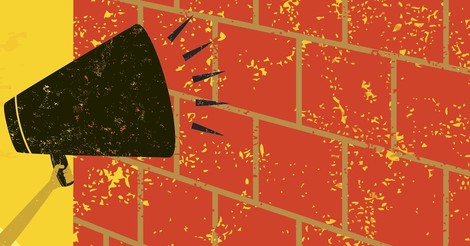Your podcast discovery platform
Curious minds select the most fascinating podcasts from around the world. Discover hand-piqd audio recommendations on your favorite topics.

piqer for: Global finds Health and Sanity Doing Good
Bangalore-based Rashmi Vasudeva's journalism has appeared in many Indian and international publications over the past decade. A features writer with over nine years of experience heading a health and fitness supplement in a mainstream Indian newspaper, her niche areas include health, wellness, fitness, food, nutrition and Indian classical Arts.
Her articles have appeared in various publications including Mint-Wall Street Journal, The Hindu, Deccan Herald (mainstream South Indian newspaper), Smart Life (Health magazine from the Malayala Manorama Group of publications), YourStory (India's media technology platform for entrepreneurs), Avantika (a noir arts and theatre magazine), ZDF (a German public broadcasting company) and others.
In 2006, she was awarded the British Print-Chevening scholarship to pursue a short-term course in new-age journalism at the University of Westminster, U.K. With a double Masters in Globalisation and Media Studies from Aarhus Universitet (Denmark), University of Amsterdam and Swansea University in Wales, U.K., she has also dabbled in academics, travel writing and socio-cultural studies. Mother to a frisky toddler, she hums 'wheels on the bus' while working and keeps a beady eye on the aforementioned toddler's antics.
Contrarian View: What's Wrong With #MeToo? Here's What
Nearly a week of #metoo and my Facebook feed is still filled with personal anecdotes, reactions from men and congratulatory stories from media outlets, just like the author's. I confess I was beginning to worry about being in the minority when this article popped up.
Here is the contrarian view I was looking for — one that is contrarian for solid reasons and not for the sake of being different.
The article claims #metoo is too perfect — this resonates greatly with those who keep track of online outrage and its predictable trajectories. Undoubtedly, the hashtag has set into motion a social movement of speaking out against abuse — everyone is feeling compelled to put out their story; it has led to a barrage of #metoo memes.
In effect, it has become an entertaining, albeit exhausting, emotive spectacle of escalating outrage and good intentions.
Or, as the article bluntly says, it has become an icon for all that is wrong with the social media.
Outrage is central to social media design — because it is an emotion that inspires sharing. For social media platforms sharing equals revenue. Yale professor Molly Crockett who has extensively studied moral outrage in the digital age notes technologies are transforming the way we experience outrage and in effect “limiting how much we can actually change social realities”.
Crockett writes, since people are more likely to share things that make them morally angry, the ‘outrage’ bar keeps rising and eventually we become numb to tragedies as “we're unable to process the emotions...at the speed which they arise”.
This might lead to habitual ‘outraging’ — where an online shamer might express outrage without actually feeling outraged. Examples of this kind of behaviour abound.
This is not to say that #metoo cannot be a ‘real’ social movement. It can, if it acquires the power to transform cultures — so that women (and men) can always speak out; without hashtags as crutches. And for that to happen, we need to also talk, not just type.
Stay up to date – with a newsletter from your channel on Global finds.
